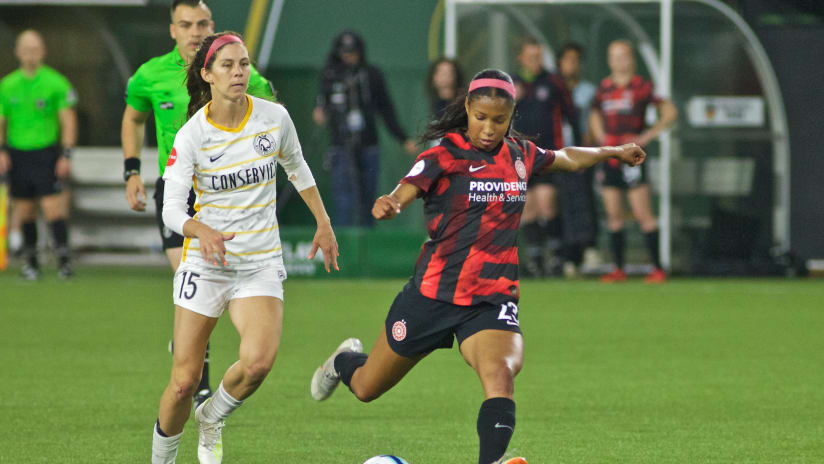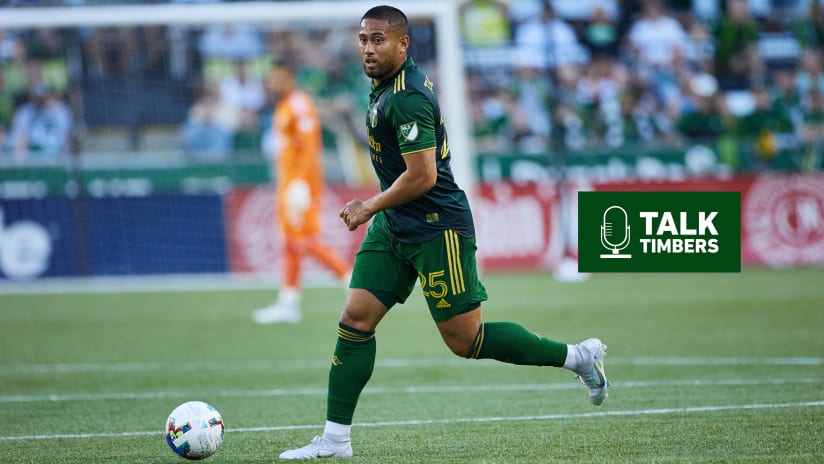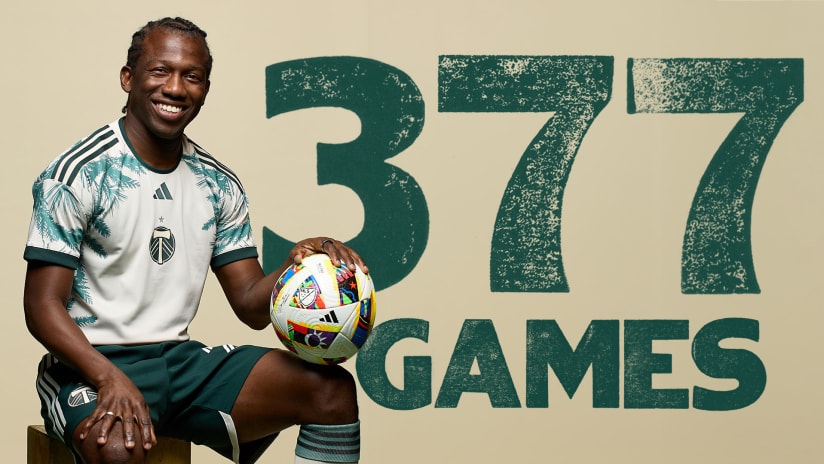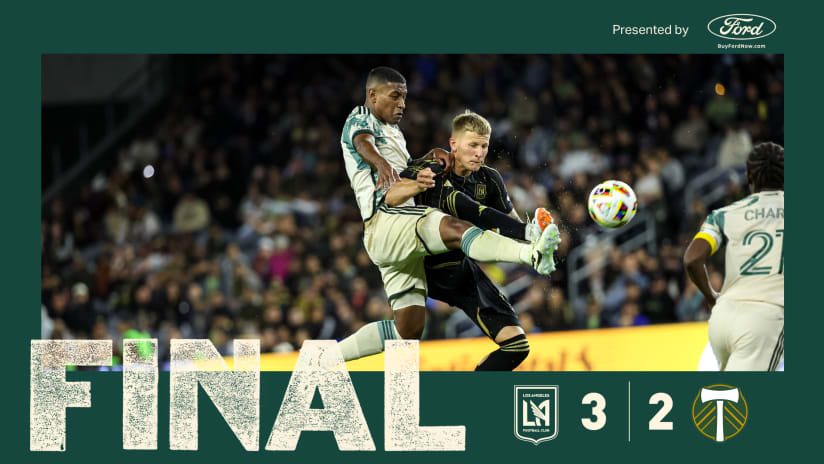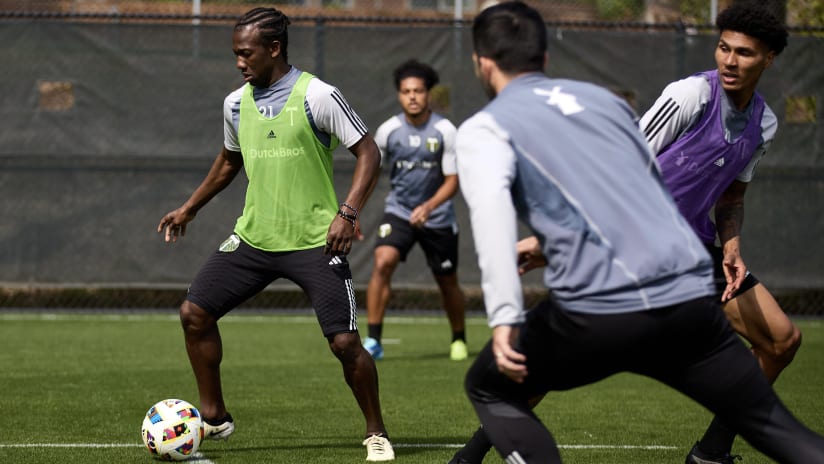PORTLAND, Ore. – Anytime a soccer game ends in a draw, at least one side can say 90 minutes wasn’t enough; say that if the game had gone longer, they would have broken through. It’s a rare occasion that both teams can make that claim, but Friday night at Providence Park, those claims would have both been true. Come the final whistle, a night’s worth of incremental progress hadn’t changed Portland Thorns FC’s “0” on the scoreboard, while two close calls over the last 15 minutes of regulation gave Utah Royals FC reason to think they were on the verge of three points.
Perhaps it was just, then, that neither team enjoyed full spoils. With the 0-0 final in Goose Hollow, the second- and third-place teams in the National Women’s Soccer League were able to share points, even if one team would have be happier with the result.
“We were a little flat; Utah were a little flat, as well,” Thorns head coach Mark Parsons said, after the game. “This was probably one of the slower paced games that we’ve seen in the league.
“We were at home. We needed to raise our intensity, which we did in the second half. Just wasn’t enough quality.”
That last word, quality, was a theme Parsons hit on repeatedly in the minutes after the game, most noticeably when he was presented with the night’s final shot totals. Portland had a 18 top seven edge on Utah, he was told. To him, the numbers didn’t matter.
“We gave them only two, three, four real chances. We were one pass away from about four, five, six,” he explained. “We could have 18 shots, we could have 24. It doesn’t matter. It’s the quality of those (that matter), and the quality of those weren’t there tonight.”
It was a symptom of that incremental progress – progress that didn’t happen fast enough. In the game’s first moments, the flatness Parsons described played out in a battle for territory, with both teams playing long, over their opponents, albeit with different objectives. When the Thorns accomplished theirs, they were able to play over the Royals’ left side, but that success only came once the two teams combined for three shots over the match’s first 33 minutes.
Afterward, the game started to open up. Portland was able to win possession, look back toward the middle, and try to find Ana-Maria Crnogocevic. charging into the penalty are from midfield. As their play evolved, the Thorns were able forgo their crosses and start building possession toward goal, leaving them in those “one pass away” situations Parsons lamented.
The second half saw more progress, with Portland forcing Utah into taking a few crucial, momentum-killing fouls. But to the Royals credit, Portland’s progress continued to be too slow. For every solution the Thorns’ attack found, Utah’s defense had a response, one that allowed more sand to drain to the bottom of the match’s hourglass.
Then, the adjustments came. Utah brought on a forward (Katie Stengel) for a midfielder (Mandy Laddish), giving them a more threatening look. Their chances started to come. Portland brought on another wide player, Madison Pogarch, and began overloading a left side that was already yielding half-chances. Much of that was the work of Meghan Klingenberg continuously using her skill to create space for another cross; but much of that, also, was how the game had evolved.
In their previous matches, Portland’s attack had been able to rely on combinations like Midge Purceand Simone Charley, or the opportunism of a Celeste Boureille ball lofted over the defense. But Utah was denying those combinations, and not presenting opportunities for lofted fortune. Instead, the Thorns were left reliant on the individual efforts of players like Klingenberg and Purce for their best chances to score.
Against the league’s best defense, it wasn’t a formula for success. Utah came into the match with two shutouts in their previous three games and left Providence Park with a third, demanding the Thorns do something special if they were going to break through. But amid a week shortened by a Friday game and the recovery from an arduous match last weekend, tonight’s game, like the night’s final whistle, may have been too early for Portland’s good.
“The last three games, people have had so much work rate and great quality,” Parsons explained. “Tonight, maybe (the game) came one day too soon, after the hard game last week.”
Nights like this happen every season. You lament the points dropped while knowing every game, despite your best intentions, can’t yield a perfect performance.
On those nights, you look at the clock and ask “will 90 minutes be enough?” With the progress Portland made from kickoff, perhaps they needed another half-hour, even if Utah’s last chances hinted that 90 minutes was enough.

